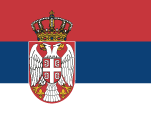Study program / study programs: INFORMATION SYSTEMS
Type and level of studies: Undergraduate applied studies
Subject: BUSINESS INFORMATION SYSTEMS
Status: Compulsory
ECTS points: 8
Course objective
Acquiring knowledge and skills in the domain of the information system development process. The goal is to teach students how to model user requirements, analyze them and design an information system applying UML concepts. In addition to the object-oriented concepts, the course introduces the concept of service-oriented architecture as the basis for the development of service-oriented applications. The focus is on developing an integrated service-oriented information system.
Course outcome
The students learn about continuous computational devices and discrete computational devices, the characteristics of data warehouse, the differences between OLTP and data warehouse, metadata, information system architecture, the types of business information systems, the basics of data mining and the phases of its realization, the categories of web mining, the characteristics of web mining, the generations of programming languages, the differences between procedural and object-oriented programming, the classes of information systems, data mart, encapsulation, how classes are determined in real systems, the fundamentals of UML modeling.
Course content
Theoretical classes:
